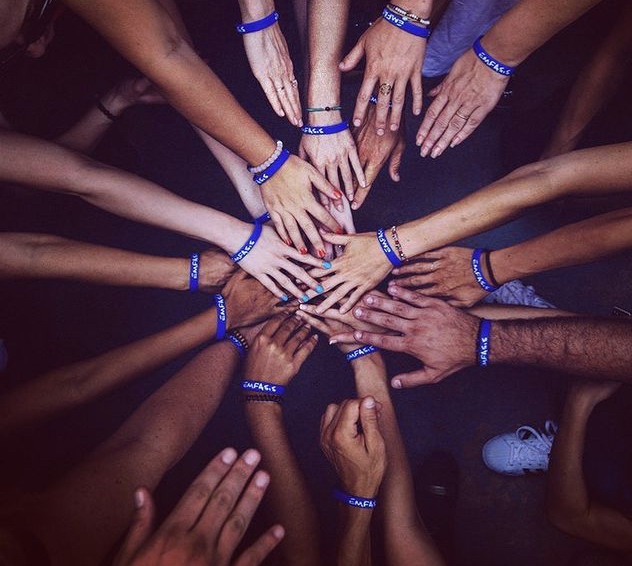
The Habit of Over Apologizing
Have you ever met someone who says “Sorry” a lot?
What are your thoughts when you hear someone repeatedly apologize?
At first, it may sound as though he/she is very sweet, but then it can start to get on our nerves. You might find yourself wondering, why is she/he apologizing when he/she hasn’t done anything wrong?!
When people say “Sorry” a lot, and they’ve not actually done something wrong, it becomes disempowering. They are giving their power away!
Take the quiz below to see how each member of your family does and then keep reading to see what one could say instead…
Are You or Your Child in the Habit of Over Apologizing? (Take the Quiz!)
- Do you say… “I’m sorry to bother you…?”
- Do you say… “Sorry” when someone else bumps into you?
- Do you say… “Sorry” because you can’t make a decision?
- Do you say… “Sorry” for someone else’s feelings?
- Do you say… “Sorry” when you’re playing a sport and the ball doesn’t go straight to the other person? (Like a mis-hit in tennis?)
- Do you say… “Sorry” when someone asks to borrow something that you already using (Eg. a marker) or that is next to you?
- Do you say… “Sorry” when you can’t master something right away?
- Do you say… “I’m sorry to interrupt…” when you want to add a meaningful point to a meaningful conversation?
- Do you… apologize repeatedly for your bad habits? (Eg. Tapping your fingers on a desk)
- Do you… apologize for someone else’s mistake(s)?
What was your score out of 10?
Of course, we do want to say “Sorry” when we have done something wrong, and in this case, it is very important to acknowledge our wrong-doing and take responsibility, but we don’t want to be over apologizing for things that are out of our control or for something that does not require an apology.
How to Stop Over Apologizing – What to Say Instead of “Sorry!”
Instead of “I’m sorry to bother you”, we could say “Excuse me, is this a convenient time to talk to you?”
When someone bumps into you, you don’t need to say anything.
When you can’t make a decision, you can say “I’m having a hard time making a decision.”
When you’re concerned about someone else’s feelings, you can let them lead the way and then validate them. To say you’re feeling sorry for them, can be taken the wrong way. For example, Tamara Taggart, a local TV broadcaster, tells the story of the doctor who first called her and her husband, to tell them that their new baby had Down’s Syndrome. The doctor started off by saying “I’m sorry…”. From that moment forward, Tamara and her husband expressed that they were not “sorry” about their child’s condition and they wrote an email to their close friends and family explaining that baby Beckett had Down’s Syndrome, but they did not want anyone to say they felt “sorry” about this. They loved/love their child for exactly who he is.
When you’re playing a sport such as tennis and you mis-hit the ball, you can acknowledge this but don’t need to say you’re sorry. Eg. “Oh my goodness, I can’t believe I hit the ball over the fence, I’ll go get it.”
When someone asks to borrow something that you’re using, you can say “Sure, I’ll just be one more minute, then you can have it.” If it’s sitting next to you, you can just pass it to them and say “Here you go.”
When you can’t master something right away, you can ask more questions for clarification or acknowledge that you’re finding this task difficult.
When you want to add to a conversation, you can raise your hand, or wait for a pause and say “I’d like to add that…”
If you know you have an annoying habit, such as tapping your fingers on a desk, think of a replacement behaviour (squeezing a fidget, or doing “square breathing” on your leg) so that you can take responsibility for changing this behaviour versus apologizing for it.
Imagine apologizing for someone else’s mistake at work and now it’s become your responsibility. We don’t want our children to get into this pattern. This is how some people in a work setting, get “walked over”. Eg. Your boss gives you a huge assignment with an unrealistic deadline and when you can’t meet your deadline, you apologize. Instead, it would be important to use your “I” messages and express the reality. Eg. “I’m feeling overwhelmed (or concerned) by the amount of work you’re hoping I can complete by Tuesday, and I’d like to discuss this timeline with you.”
Why Do Some People Get in The Habit of Over Apologizing?
Some people say “I’m sorry” a lot because they want to be nice and they want to keep people happy. This may be due to some underlying anxiety that if they’re not seen as nice, people will judge them in a negative light.
As children, they have been asked to say “Sorry” for everything, as it was considered polite, and now it’s an engrained habit.
Saying “Sorry” can be a peace-keeping mechanism for avoiding confrontation or an attempt to keep the other person calm, especially in abusive relationships. It can be a way of trying to make the problem disappear.
If a child has parents who apologize a lot, he/she may have modelled this behaviour.
If someone is seeking reassurance, he/she may say “Sorry” in hopes that the other person says “It’s okay.” This is another sign of possible underlying anxiety.
If someone is a perfectionist (also rooted in anxiety), he/she may apologize when he/she thinks things aren’t perfect. (For further reading: Perfectionism – How to Recognize It and What To Do About It and What Is The Real Fear for A Perfectionist?)
When to Apologize
It’s important to say “Sorry” when we have actually done something wrong. In these cases, it’s often best to say it as soon as possible to begin the process of making amends.
With children and teens, there may be times when they really should say “Sorry” and they refuse or say it insincerely, which defeats the purpose. I have written a previous blog, How to Teach Your Child to Apologize which you can find here, and another blog about The 5 Language of Apology, here, based on the work of Dr. Gary Chapman and Dr. Jennifer Thomas.
When the children or teens I work with say “Sorry” for something where they haven’t done anything wrong, I bring it to their attention. Remember, sometimes these habits are unconscious and we don’t even realize we’re doing it.
I ask them why they’re apologizing for something when they haven’t done anything wrong and I explain that it actually gives their power away. This will be a topic, we’ll be discussing in our Self-Empowerment groups starting this week.
What was your score on the quiz today? Are you in the habit of over apologizing? Did you have any “Aha” moments? If so, I’d love to hear you comments on my Facebook page here.
All the best for a wonderful week and safe and fun Halloween, (if you take part in this activity),
Warmly,

PS. The next round of Self Empowerment groups are currently full, but you’re welcome to put your name on the waiting list, in case a space becomes available. The next Self Empowerment groups will run in March 2019.
PPS. Looking for some free resources to help you with your parenting journey. Head over to my Free Resources page for free video courses, ebooks etc.
PPPS. Are you on Instagram? I’ve had a few clients recently tell me how much they’re enjoying my Instagram feed 🙂 Each week, I try to focus on one theme and post images throughout the week with quotes and helpful hints to keep us on track with the theme of the week. I’d love for you to join me and 8000+ followers over on my Instagram page @sharonselbyparenting
Want to Connect?
Subscribe now to receive free weekly parenting tips and inspiration.






